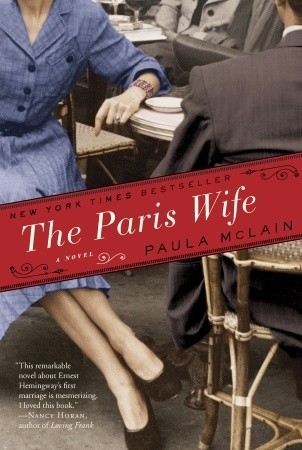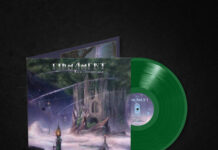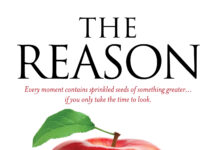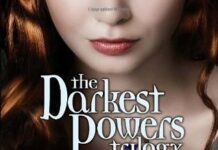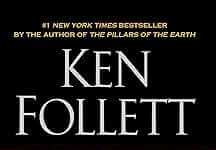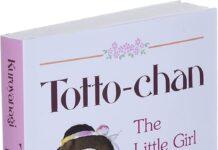In the heart of 1920s Paris, where the air was thick with artistic ambition and the echoes of jazz filled the streets, love blossomed alongside struggle, each moment interwoven with the vibrant threads of a tumultuous era. Paula McLain’s novel,”The Paris Wife,” transports readers into the passionate yet complex world of Hadley Richardson,the first wife of renowned author Ernest Hemingway. Through the lens of Hadley’s experiences, the narrative invites us to explore the delicate balance between devotion and sacrifice, as it unravels the profound complexities of love against the backdrop of a rapidly changing society. In this review, we will delve into McLain’s poignant storytelling, examining how she captures not only the intoxicating allure of romance but also the stark realities of personal ambition, loss, and the relentless pursuit of identity. As we turn the pages of “The Paris Wife,” we are reminded that while love can be a refuge, it can also demand the highest of prices.
The historical Context and Its Role in Shaping the Narrative
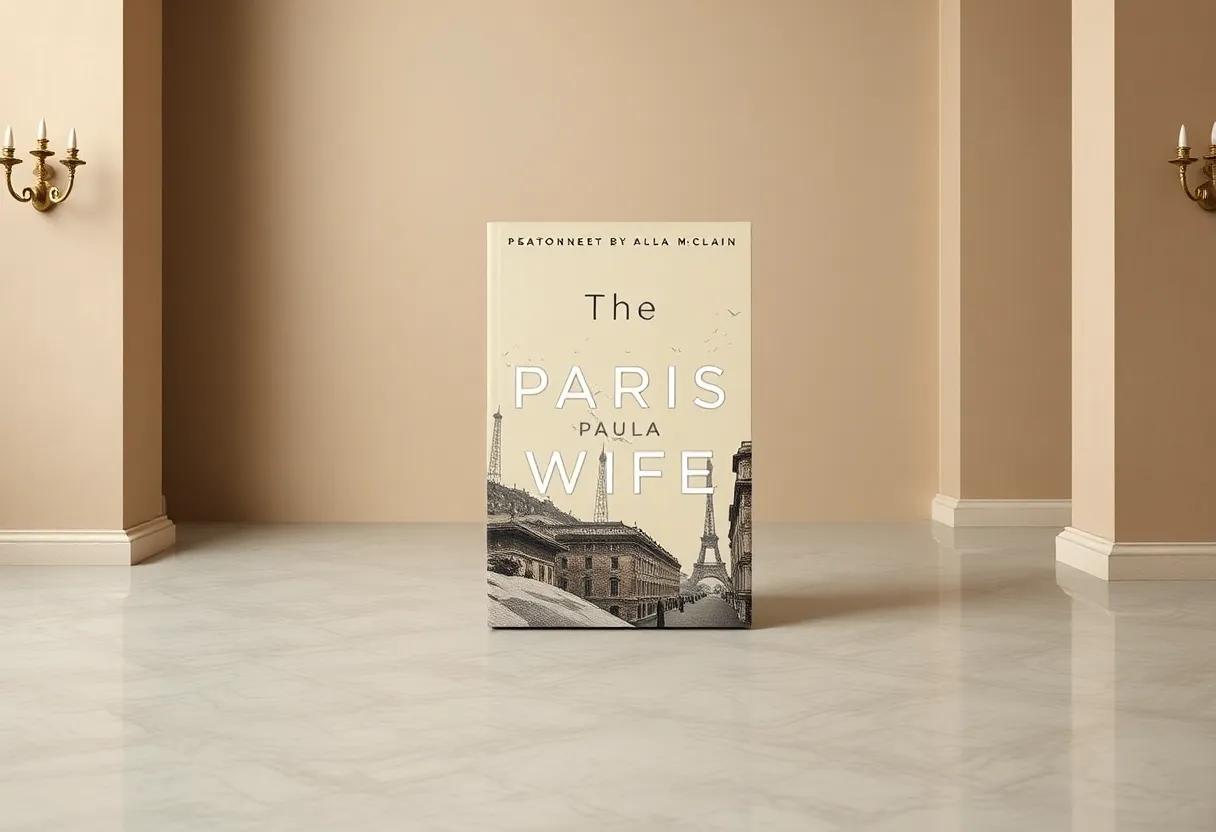
The backdrop of the 1920s, a time of critically important social change and cultural upheaval, serves as a rich tapestry against which mclain weaves the story of Hadley Richardson and Ernest Hemingway. This decade was marked by the emergence of the Lost Generation,a term coined by Gertrude Stein to describe disillusioned expatriates who sought artistic and personal reinvention in Europe,especially in Paris. Amidst this atmosphere of liberation and experimentation, themes of love, ambition, and self-discovery play out, anchoring character motivations in historical reality. Hadley’s life becomes a mirror reflecting the emotional turbulence and transformative energy of the age, while her relationship with Hemingway encapsulates the struggles between personal desires and societal expectations during a time of shifting moral codes.
The interactions among literary titans like F. Scott Fitzgerald and Gertrude Stein, pivotal figures of the 1920s, add depth to the narrative, showcasing the vibrancy of the Parisian salons where ideas flowed as freely as the wine. McLain immerses readers in this hyper-creative milieu, illustrated by key elements such as:
Best-Selling Books in This Category
- Intellectual Rivalry: The competition amongst writers sharpened their wit and creativity.
- Gender Dynamics: Women like Hadley navigated shifting roles, often balancing personal aspiration with partner support.
- Artistic Freedom: The experimentation in style and form became the hallmark of this revolutionary period.
This rich historical context not only enhances the emotional stakes of Hadley and Hemingway’s tumultuous relationship but also serves as a poignant reminder of how external upheavals can profoundly influence personal narratives. By situating her characters within this vibrant and often chaotic framework, McLain allows readers to draw parallels between the struggles faced by the couple and the broader societal battles of the time.
Character development: The Depths of Love and Ambition

In “The Paris Wife,” Paula McLain masterfully navigates the delicate interplay between love and ambition, showcasing the transformative journey of Hadley richardson and her tumultuous relationship with Ernest hemingway. Hadley, a character full of vulnerability and strength, embodies the struggle many face when balancing personal aspirations against the backdrop of a partner’s rising star. As Ernest’s fame burgeons, Hadley grapples with her own identity, revealing the internal conflict of a woman torn between supporting her husband’s pursuits and yearning to be seen for her own worth. The emotional richness of Hadley’s character is painted in shades of loyalty, sacrifice, and sometimes self-doubt, inviting readers to explore the intricate web of love fraught with passion and insecurity.
Similarly, Ernest emerges as a figure driven by ambition, yet plagued by his own demons. His relentless pursuit of literary greatness often casts a shadow over his relationship with Hadley, leading to moments of intimacy and alienation. Through vivid storytelling, McLain exposes the duality of ambition: while it fuels creativity, it can also sow discord in the bonds we cherish. This dance between love and ambition resonates with many, highlighting how the very forces that can uplift can also threaten to unravel relationships. As the narrative unfolds, readers witness the deterioration of a once-passionate connection, exposing the stark realities of ambition in the face of enduring love.
A Portrait of Paris: The City as a Character
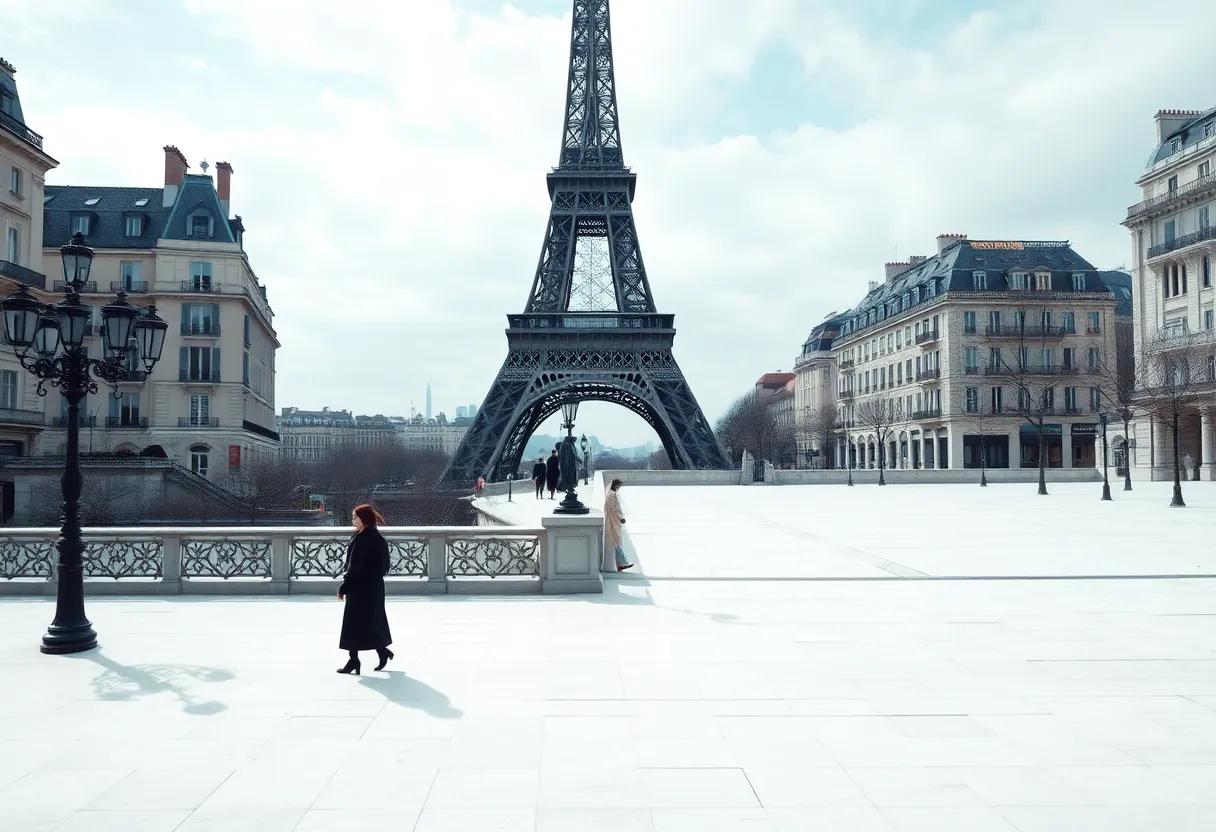
In the pages of McLain’s novel, Paris emerges not merely as a backdrop but as a living, breathing entity, exuding a palpable energy that intertwines with the lives of its characters. The vibrant streets filled with café chatter and artistic aspirations evoke a romance that captivates, while simultaneously serving as a reminder of the city’s ever-present struggles. The author effectively captures the dichotomy of paris, illustrating how the beauty of its architecture and the charm of its boulevards mask the personal battles faced by those who inhabit it. Each district becomes a canvas for Hemingway’s ambition and Hadley’s discontent, reflecting their inner turmoil against the backdrop of a city steeped in both history and creative fervor.
As readers traverse the cobbled streets of Montmartre or gaze upon the Seine, the complexities of love and ambition unfold amidst Paris’s allure. McLain expertly employs rich, descriptive language to immerse us in the sights, sounds, and scents of this iconic city. A brief glimpse of this enchanting yet contentious relationship with Paris can be captured in the following table:
| Element of Paris | Significance |
| Street Cafés | Symbol of creativity and connection |
| The Seine River | Flow of life and ambition’s ebb and flow |
| Montmartre | Artistic struggles and bohemian spirit |
Themes of Betrayal and Forgiveness: Navigating Complex Emotions

In The Paris Wife, the delicate dance between betrayal and forgiveness weaves a complex emotional tapestry that keeps readers enthralled. Throughout the novel, Hadley Richardson navigates her evolving relationship with Ernest Hemingway, marked by instances that test the limits of loyalty and trust. The nuances of their marriage echo the struggles of many relationships—a balancing act between passion and heartache, each betrayal sticks like a thorn, igniting questions of love’s resilience. The exploration of personal sacrifice versus ambition highlights the internal conflicts that accompany their choices, often leaving Hadley grappling with self-doubt and insecurity. Through her lens, McLain invites readers to examine the cost of unfulfilled desires, as well as the role of forgiveness in rekindling a sense of belonging despite the pain inflicted by loved ones.
Emerging from the shadows of betrayal is a poignant theme of forgiveness, intricately linked to the journey of self-awareness. As Hadley confronts the inevitable fractures in her relationship with Ernest, she discovers that forgiveness is not merely an act but a profound emotional journey that requires understanding and acceptance. This evolution can be likened to the stages of grief, marking the change from despair to healing. Below is a brief overview of key emotional stages depicted in the novel:
| Stage | Description |
|---|---|
| Shock | Initial reaction to betrayal creates a sense of disbelief. |
| anger | Feelings of frustration and resentment surface. |
| Reflection | Introspection leads to deeper understanding of circumstances. |
| Acceptance | A decision to move forward, with or without the partner. |
| Healing | Forgiveness blooms, signifying personal growth and renewal. |
The Style and Prose: McLain’s Elegant Language
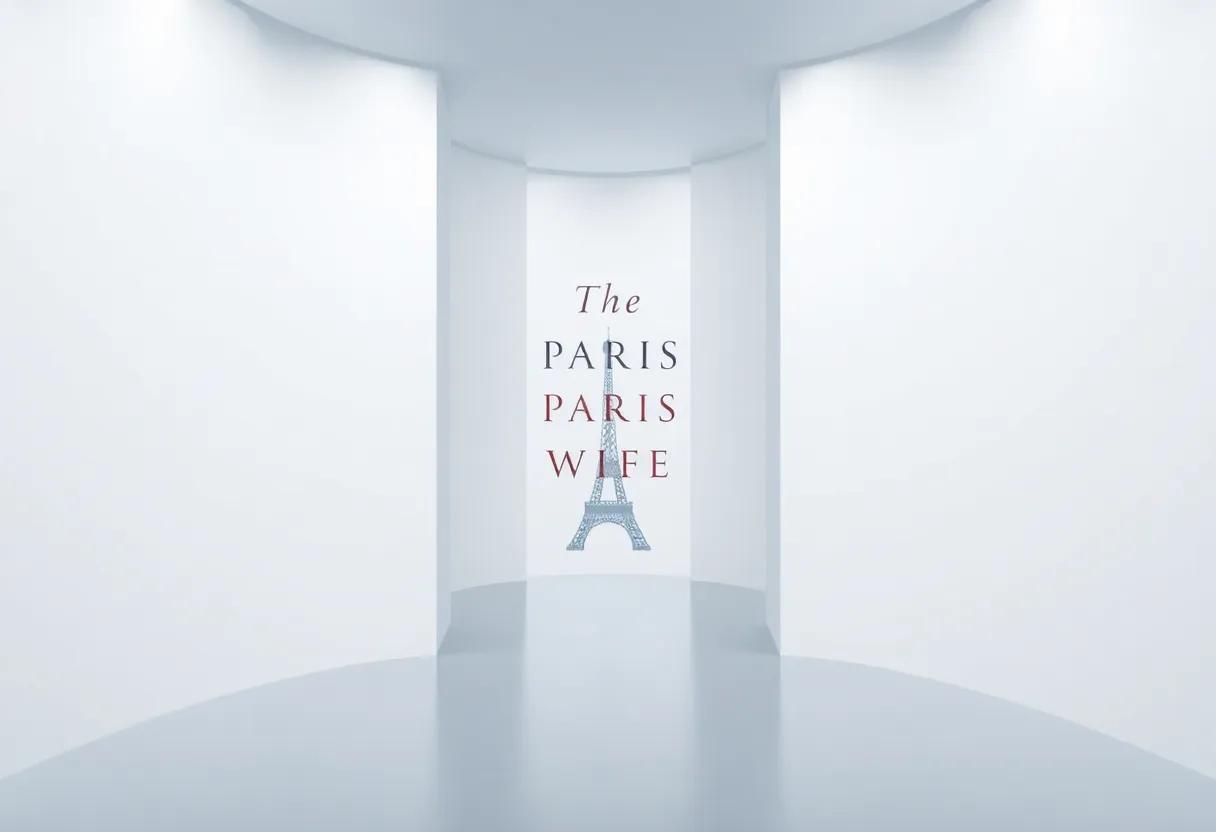
paula McLain captures the essence of early 20th-century Paris through language that feels both immersive and intimate. Her prose is characterized by a lyrical quality that draws readers into the emotional landscapes of her characters. With every turn of phrase,McLain intricately weaves together the experiences of love,ambition,and disillusionment,creating a tapestry that resonates on multiple levels. The elegant rhythm of her sentences evokes the art and ambiance of the time, making the backdrop of paris not merely a setting, but a character in its own right.
The author’s use of vivid imagery and poignant reflections allows readers to feel the weight of each moment, from the thrill of passion to the pangs of heartache. As a notable example, her descriptions of the vibrant Rue de Fleurus and the salons bustling with creativity transport readers directly into the world of Ernest Hemingway and Hadley Richardson. In this way, McLain employs language that is both evocative and relatable, effectively bridging the gap between historical narrative and modern sensibility. This elegant style not only captivates but also prompts deeper reflection on the complex interplay between love and personal struggle.
Romantic Relationships: A Study of passion and Pain
In ‘The Paris Wife’, Paula McLain masterfully encapsulates the duality of love—a fierce flame that ignites passion while also casting shadows of struggle. Set against the backdrop of 1920s Paris, the story offers a poignant glimpse into the tumultuous relationship between Hadley Richardson and the iconic writer Ernest Hemingway.as Hadley navigates the thrill of their whirlwind romance, readers can sense the delicate balance between admiration and the heartbreak that often accompanies such intense devotion. The narrative paints a vivid picture of how love can simultaneously uplift and unravel, compelling us to ponder the intricate dance of intimacy and individuality.
The novel unfolds like a tapestry,weaving together moments of ecstasy with threads of despair,as it dives deep into the complexities of their marriage.Key themes emerge, exploring the aftermath of decisions driven by passion, the impact of ambition on personal relationships, and the inevitable transformations that accompany time. McLain’s portrayal prompts reflection on vital questions such as:
- What sacrifices are made in the name of love?
- How does ambition influence the dynamics of a relationship?
- Can passion survive the wounds of infidelity?
Through hadley’s eyes, we witness the delightful moments and also the haunting fractures that define their bond. This narrative invites us to empathize not just with Hadley, but with the shared vulnerabilities that come with loving a creative soul, laying bare how love can bring both great joy and profound sorrow.
Friendship and Rivalry: Influences in the Literary Circle
In the vibrant literary circles of the early 20th century, friendship and rivalry intertwined seamlessly, shaping the work and lives of many writers. In *The Paris Wife*, paula McLain masterfully captures the essence of this duality through the lens of Hadley Richardson, the first wife of Ernest Hemingway.Their relationship is marked by both enchanting camaraderie and the tension of literary ambition.The narrative vividly illustrates how hadley’s unwavering support for Hemingway’s fledgling career is challenged by the burgeoning rivalry he faces with other literary figures, including F. Scott Fitzgerald. This complex interplay fuels not only his ambition but also strains their bond,demonstrating how love can often coexist with fierce competition in creative realms.
Within the rich tapestry of the literary world depicted in the novel, several themes emerge that reflect the impact of friendship and rivalry on artistic expression:
- creative Collaboration: the alliances formed among writers provide vital support, fostering an environment ripe for innovation.
- Jealousy: Competitive relationships can breed rivalry that stifles creativity rather than enhancing it.
- Influence: the exchange of ideas among friends can transform individual works, prompting a mutual elevation of style and themes.
The interconnectedness of these elements is not merely a backdrop in McLain’s narrative; it shapes the characters profoundly. The struggle to balance personal ambition with the needs of a partner often leads to pivotal moments that define both their personal and professional identities. A table reflecting their relationships provides insight into this dichotomy:
| Influence | Relationship | Impact on Work |
|---|---|---|
| F.Scott fitzgerald | Friendship | Mutual inspiration and literary growth |
| Gertrude Stein | Mentor | Literary guidance and critique |
| William Faulkner | Rivalry | Pressure to innovate and excel |
The Impact of Historical Figures on the Plot
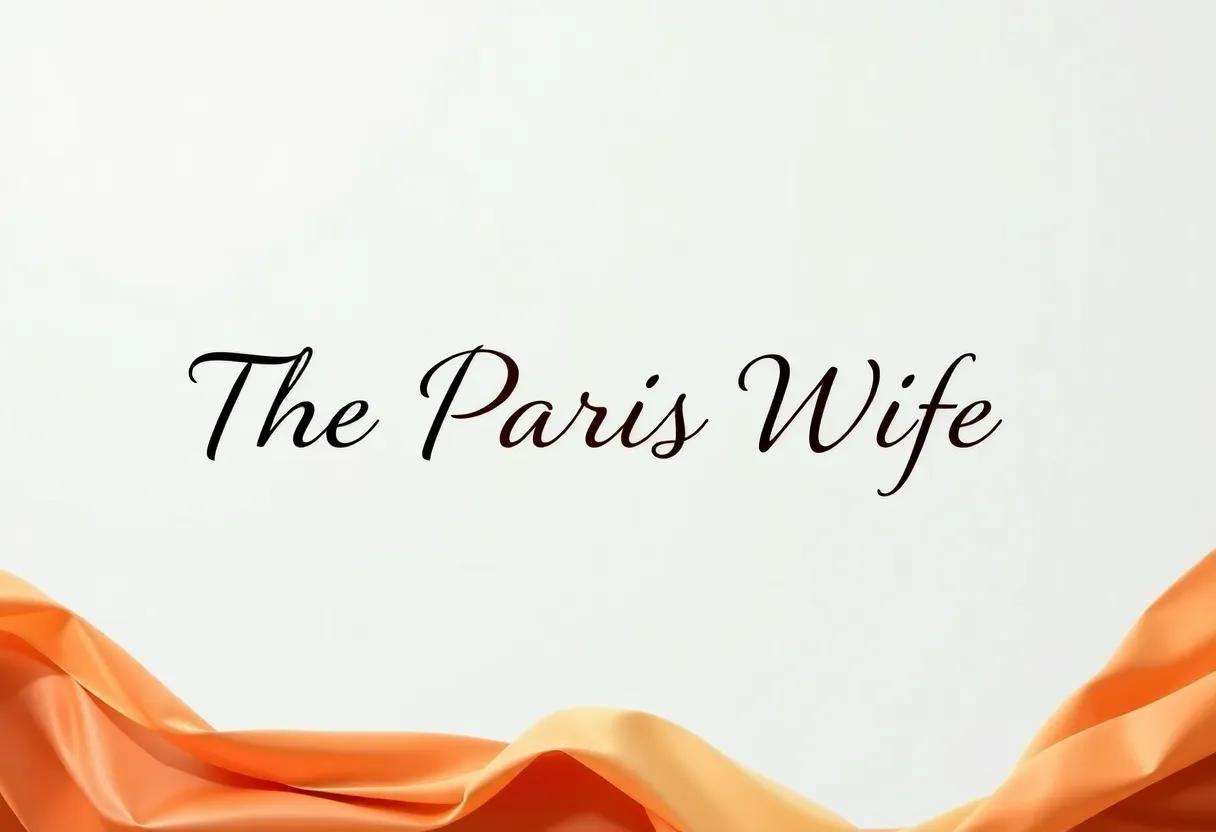
In ”The Paris Wife,” Paula McLain skillfully intertwines the lives of historical figures with the narrative of Hadley Richardson and her tumultuous relationship with Ernest Hemingway.the portrayal of Ernest hemingway not only reflects his literary genius but also highlights the complexities of his personality, often oscillating between charm and vulnerability. While the novel paints an intimate picture of their marriage, it also illustrates how Hemingway’s interactions with literary contemporaries shaped both his professional trajectory and personal life. Through encounters with influential characters such as Gertrude Stein and F. Scott Fitzgerald, the plot unveils the competitive yet collaborative spirit of the Lost generation, showcasing their collective struggles and artistic aspirations.
The impact of these historical figures extends beyond mere character development; they serve as catalysts for Hadley’s own journey of self-discovery amidst love and sacrifice. As she grapples with the pressures of being married to a burgeoning literary icon, Hadley’s relationships with other notable figures—like Scott Fitzgerald—provide a lens into the social dynamics of the era. Their vibrant discussions about art, success, and the sacrifices required resonate throughout the novel, illuminating the challenges faced by women in the shadow of their husbands’ ambitions. The intertwining of personal and historical narratives enriches the reading experience by transforming Hadley from a mere supporting character into a symbol of resilience amidst the shifting tides of fame and creativity.
The role of gender in the 1920s Parisian Landscape
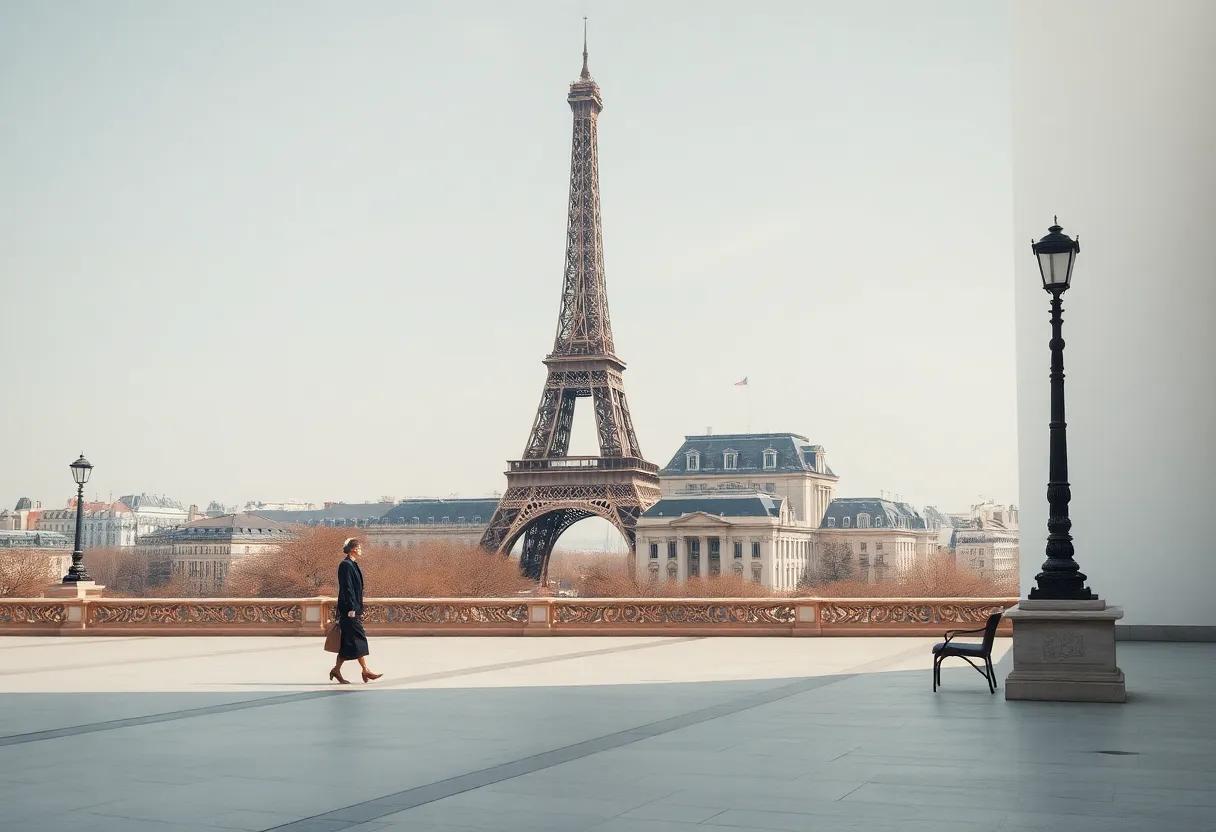
The vibrant streets of 1920s Paris were not just a haven for artists, writers, and intellectuals; they were also a crucible for gender dynamics. Women like Hadley Richardson, the protagonist in McLain’s narrative, found themselves navigating a world that oscillated between tradition and modernity.As they mingled with influential figures, such as Gertrude Stein and Virginia Woolf, they began to assert their voices in ways that would see a shift in societal expectations. The exploration of love and struggle, against this backdrop, reveals a complex tapestry where women wrestled with both their ambitions and personal relationships.
Within this changing landscape, women were not mere muses; they were actively defining their identities. The emergence of flapper culture symbolized a rebellion against victorian ideals, allowing women a taste of autonomy and self-expression.While many were still confined by traditional roles, the new Parisian cafes and salons became spaces where they could engage in spirited discussions and challenge established norms. The impact of this cultural shift is intricate, as exhibited in the lives of characters such as Hadley, who balanced their desire for independence with the demands of love, reflecting a broader struggle faced by women of the era.
Emotional Resonance: Connecting Readers to the story

In The Paris Wife, Paula McLain beautifully intertwines the personal struggles and profound emotions of her characters, inviting readers into the intimate world of Ernest Hemingway and his first wife, Hadley Richardson.Through vivid descriptions and poignant dialog, McLain captures the essence of their passionate but tumultuous relationship, making it palpable.Readers find themselves swept into the vibrant streets of Paris, where love blossoms against the backdrop of artistic ambition and societal change. this setting is not just a stage; it becomes a character itself, deeply influencing the couple’s journey. The weight of decisions,sacrifices,and the relentless pursuit of dreams resonates deeply,as McLain artfully explores themes of love intertwined with personal growth.
The emotional depth of the narrative is further heightened by McLain’s emphasis on the reality of heartbreak and aspiration. Each character’s internal conflicts and vulnerabilities reveal the fragility of human connections, making readers reflect on their own experiences. Key moments that spotlight these themes include:
- Hadley’s unwavering support as Ernest grapples with his insecurities.
- The tension of ambition as both strive to carve their paths amidst life’s unpredictability.
- The bittersweet nature of their love,ultimately shaped by personal sacrifices.
These beautifully crafted elements make McLain’s story resonate on multiple emotional levels,allowing readers to engage with the characters’ joys and struggles in ways that linger long after the last page is turned.
Lessons on Love: What We can Learn from Hadley and Ernest
Hadley Richardson and Ernest Hemingway’s tumultuous relationship offers a nuanced perspective on the complexities of love. Their passionate beginnings, marked by intense inspiration and creativity, swiftly transition into the profound struggles of fame and personal ambition. From their experiences, readers can glean the importance of dialogue and mutual support. Hadley often found herself overshadowed by ernest’s emerging literary fame, yet her unwavering belief in his talent served as a testament to the strength of loyalty within a partnership. This dynamic duo illustrates how love can be both a motivating force and a source of conflict, revealing that personal dreams can sometimes clash with shared visions.
The lessons extracted from their love story highlight the fragile balance between affection,ambition,and identity. As their relationship evolved, the strain of public scrutiny and personal expectations led to a poignant realization: love requires continual effort and vulnerability. The duality of their connection teaches us that understanding and acceptance are crucial components for navigating the inevitable challenges couples face. In reflecting on their journey, one can appreciate the power of love to inspire greatness while also recognizing that it can struggle under the weight of insecurity and unfulfilled aspirations.
| key Lesson | Description |
| Communication | Vital for resolving conflicts and reinforcing bonds. |
| Support | Believing in each other’s dreams enhances partnership. |
| Understanding | Recognizing individual aspirations leads to deeper connections. |
| Acceptance | Embracing flaws and challenges strengthens love. |
Critical Reception: How readers and Critics Have Responded
Upon its release, The Paris Wife garnered a mixed yet predominantly positive response from readers and critics alike. Many praised McLain’s ability to vividly capture the essence of Paris in the 1920s and the emotional struggles of Hadley Richardson, Hemingway’s first wife.Critics highlighted the novel’s rich character development and the depth of its exploration of love and personal sacrifice. Key points noted in reviews include:
- Emotional Depth: Readers felt a strong connection to Hadley,resonating with her inner turmoil and strength.
- Historical Authenticity: The depiction of the Lost Generation was lauded for its authenticity and vivid imagery.
- Prose Style: McLain’s lyrical narrative style received thankfulness for its beauty and evocativeness.
Conversely, some critiques pointed to pacing issues, arguing that certain sections felt drawn out and could have benefitted from tighter editing. Despite this, the novel maintained a loyal following, with many readers voicing their admiration on platforms such as Goodreads and Amazon, often highlighting its bittersweet portrayal of a love story intertwined with the complexities of artistic ambition. A snapshot of average ratings is illustrated below:
| platform | Average Rating |
|---|---|
| Goodreads | 4.2/5 |
| Amazon | 4.1/5 |
| LibraryThing | 3.9/5 |
Exploring the Author’s Craft: Paula McLain’s Unique Voice

Paula McLain’s narrative style in “The Paris Wife” is a masterclass in the art of voice. She intricately weaves the threads of sentiment and historical authenticity, allowing readers to immerse themselves in the world of Ernest Hemingway through the eyes of Hadley Richardson. McLain’s prose is both lyrical and poignant, striking a balance between the rawness of emotion and the elegance of the period’s social landscape. Her choice of language resonates with the struggles and triumphs of love, encapsulating the essence of an era marked by turmoil and artistic aspiration. The use of vivid imagery and personal reflection evokes a strong sense of intimacy, pulling readers into Hadley’s intimate thoughts and experiences. This immersive approach results in a compelling blend of personal and worldwide themes, making the narrative not just a retelling of history, but a poignant exploration of the human condition.
The author also utilizes a distinctively reflective tone that invites introspection. Through careful characterization, McLain crafts hadley not just as a muse, but as a fully realized individual grappling with her own identity in the shadow of a legendary figure. The emotional depth of the narrative is accentuated with elements like:
- internal Conflicts: The constant tug-of-war between ambition and devotion.
- Symbolism of Paris: The city as a character that shapes Hadley’s experiences.
- Evocative Dialogues: Conversations that reveal the undercurrents of love and disillusionment.
This creative framework not only amplifies the emotional stakes but also enriches the reader’s engagement with McLain’s story,creating a lasting impression of love intertwined with the bittersweet realities of life.
A Glimpse into McLain’s Journey as a Writer and Historian
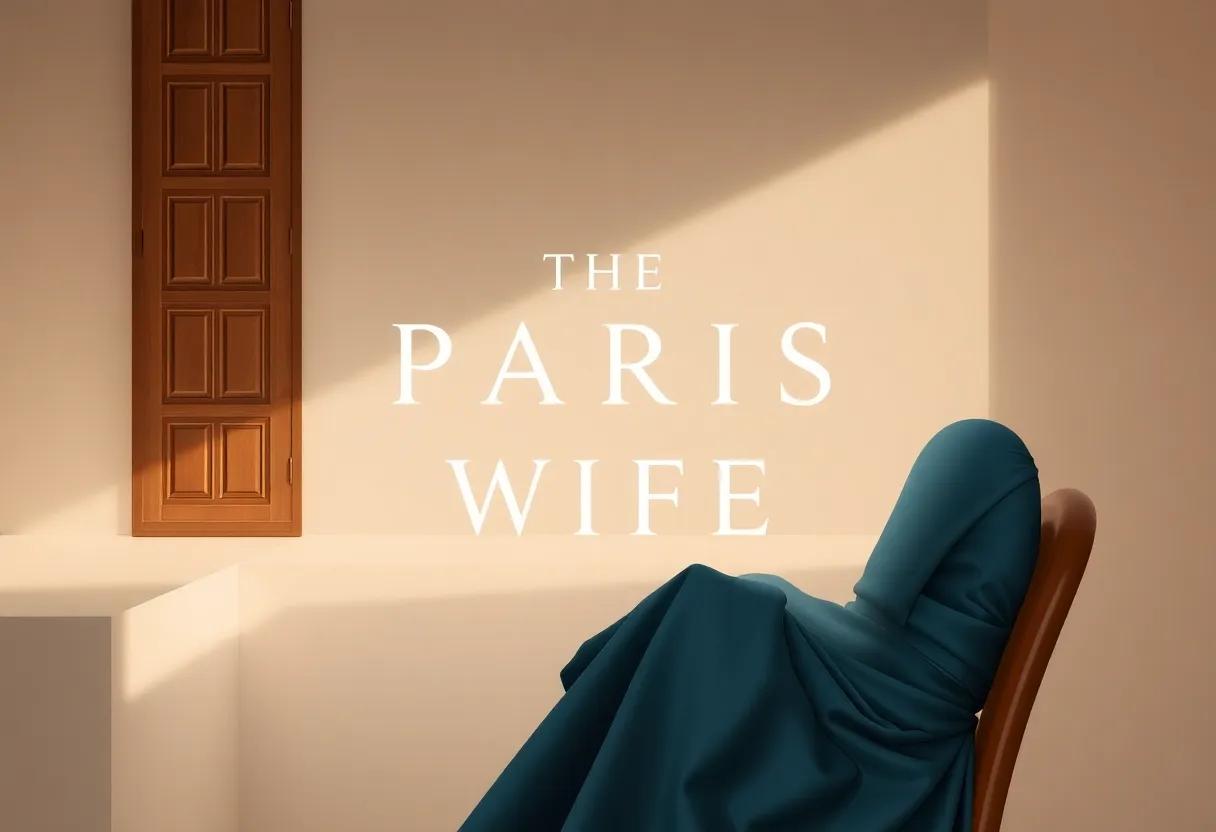
Paula McLain’s evolution as a writer and historian illustrates a profound dedication to uncovering the intricacies of human emotion and loss. Her extensive background in literature and biography has equipped her with the tools to delve into the complexities of her characters’ inner lives, particularly evident in her portrayal of Hadley Richardson in The Paris Wife. McLain intertwines biographical research with narrative flair, allowing readers to engage with not just the events of Hadley’s life but also the poignant struggles of love and identity during the vibrant yet tumultuous era of 1920s Paris. Her meticulous attention to detail creates a vivid tapestry of the relationships that shaped her subjects, blurring the lines between history and intimate storytelling.
Through McLain’s work, readers can discern a larger narrative about resilience and the quest for self amid the chaos of life’s challenges. the finesse with which she balances factual history with imaginative writing fosters a deeper understanding of the motivations behind her characters’ actions. McLain’s journey as a writer reflects her desire to illuminate lesser-known stories, revealing the unsung voices that have played pivotal roles in the lives of literary giants. By doing so, she brings forth themes such as:
- The intricacies of love – exploring how relationships can both uplift and confine.
- Personal struggle – emphasizing the tension between public persona and personal turmoil.
- Historical context – illustrating how the struggles of the past echo in today’s world.
To Wrap It up
In the landscape of literary exploration, “The Paris Wife” by Paula McLain emerges as a poignant testament to love’s complexities and the shadows of struggle that often accompany it. through Hadley Richardson’s eyes, we are invited to traverse the vibrant streets of 1920s Paris, where artistic fervor intertwines with the dizzying highs and heart-wrenching lows of her marriage to ernest Hemingway. McLain skillfully weaves together rich historical detail with the intimate nuances of their relationship, creating a tapestry that is at once heartbreaking and beautifully reflective.
As we close the pages of this evocative narrative, we are left with more than just a glimpse into a bygone era; we grapple with universal themes of ambition, sacrifice, and the bittersweet nature of love. Whether you come seeking an understanding of the personal struggles that shaped one of literature’s giants or simply wish to bask in the glow of a love story marked by both passion and pain, “The Paris Wife” delivers with grace and depth.
McLain’s work reminds us that love, despite its alluring allure, is often fraught with trials, and every relationship bears the markings of its battles. “The Paris Wife” is not just a story of one woman’s life beside a literary legend; it is indeed a mirror reflecting the essence of what it means to love and to endure. As we reflect on Hadley’s journey,we are left pondering our own connections—and perhaps,the way in which love and struggle dance together in the grand tapestry of life.

